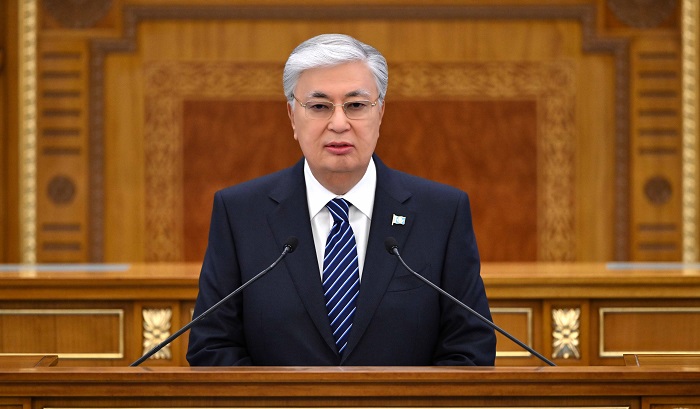President Tokayev of Kazakhstan, at the start of the 33rd session of the parliament, gave the detailed guidelines to the lawmakers for the current legislative work.
Here is the relevant portion from his speech related to the investment climate and conditions for doing business :
It is important to constantly work on improving the investment climate and conditions for doing business.
In the conditions of intense international competition for investments, the primary need is to make decisions to attract capital in the “here and now” mode. Therefore, the Investment Headquarters under the Government was endowed with greater powers. This made it possible to accelerate the implementation of projects in such priority areas as deep metal processing, oil, gas and coal chemistry, tourism, energy, and mechanical engineering.
Work in this direction needs to be strengthened to prevent a decrease in the volume of direct investment in the economy. I would like to note that not all akims and ministers are properly involved in the process of attracting investors. The government is obliged to make adjustments to this work.
It is necessary to pay attention to the higher quality preparation of public-private partnership projects with the participation of international financial institutions. I instruct the Government to determine a pool of large-scale turnkey projects that can be financed by international financial organizations through the PPP mechanism.
In May of this year, I signed the Decree “On measures to liberalize the economy.” The provisions of this document are subject to strict execution.
The share of direct state participation in the economy remains at a high level, which violates the equality of conditions in the market and suppresses private initiative.
It must be acknowledged that we have not yet developed an optimal policy for managing state enterprises. It is necessary to regulate by law the goals, functions, types, methods of financing and other aspects of their activities. In addition, it is necessary to ensure stability and a systematic approach to the financial relations between holdings and the Government.
In the 2022 Address, I instructed to introduce regulation “from scratch”. As part of the first stage of the reform, more than 10 thousand redundant and irrelevant requirements restricting entrepreneurial activity have already been eliminated. The Prosecutor General’s Office has joined the work of supporting large investment projects, simplified conditions have been created for investors like a “green corridor”, and economic crimes are being decriminalized. However, complaints from entrepreneurs about excessive control and supervisory activities of government agencies continue to arrive. The Government and the Prosecutor General’s Office need to eliminate the negative phenomena affecting the investment climate. It is also necessary to bring clarity to the interaction of the state with capital owners as part of the work on asset recovery.
Last year, at a meeting with business, I expressed my firm position on this matter. We agreed that a mandatory condition for capital amnesty would be investing funds in the economy of Kazakhstan. The main thing is that they work for the benefit of the country. This point must be enshrined in law.
Entrepreneurs included in the relevant register may be given the opportunity to conclude an agreement without recognizing the illegality of the transferred assets. This is a big step in the interests of large entrepreneurs. But the entrepreneurs themselves must meet the Government and the Prosecutor General’s Office halfway in terms of directing funds to the republican budget. And do this based on goodwill, without haggling over every tenge. At the same time, these individuals, as citizens of our state, are obliged to invest significant funds in the construction of schools, hospitals, stadiums, museums and other socio-cultural facilities. The names of such people may remain on the “golden list” of philanthropists. In the event of a refusal or delay in the process, the conversation with such entrepreneurs will be different. At the same time, it is necessary to organize all information about the assets returned to the state and their intended use.
The Government has been given an important task: to increase the share of medium-sized businesses in the economy to 15% by 2029. Today, this figure is about 7%. At the beginning of the year, I instructed that specific decisions be made to support medium-sized businesses. It was assumed that a package of measures would be developed. However, they have not yet been developed.
Each business entity should easily navigate and know what types of support there are and how they can receive them. Then small businesses will be more interested in moving into the medium category. Now we have more than 100 support measures, which even a strong specialist will get confused in. Therefore, they should be reviewed for effectiveness and a single list of preferences and benefits should be created that is understandable to businesses.
Fintech tools can be used to develop small and medium-sized businesses; there are relevant proposals on this issue. /// nCa, 3 September 2024
